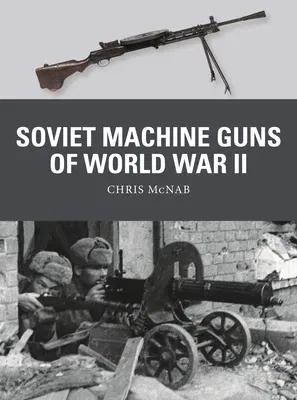Drawing on in-depth research, including work within the Royal
Armouries, this study looks at how the Soviet armed forces developed and
deployed a range of machine guns that fitted with their offensive and
defensive infantry tactics across six years of total war.
In 1939, three machine guns dominated the Red Army's front-line infantry
firepower -- the DShK 1938 heavy machine gun, the PM M1910 medium/heavy
machine gun, and the Degtyaryov DP-27, a lighter, bipod-mounted support
weapon. Confronted by cutting-edge German technology during the Great
Patriotic War (1941-45), the Soviets responded with the development of
new weaponry, including the RPD light machine gun, the 7.62×54mmR SG43
medium machine gun and the improved version of the DP-27, the DPM. Taken
together, all these weapons gave the Red Army a more practical range of
support weapons, better able to challenge the Germans for fire
superiority on the battlefield.
Fully illustrated, this study explains the technology and the tactics of
these machine guns. Noted authority Chris McNab sets out how these
machine guns were distributed and tactically applied and provides
numerous examples of the weapons in action, from assault teams on the
streets of Stalingrad to tank crews struggling for survival at Kursk.
The book also reflects upon the weapons' post-war service; many of the
machine guns remain in front-line use today. Illustrated with
high-quality photographs and specially commissioned artwork, this is a
deep analysis of these essential tools of warfare within the Soviet
forces.

